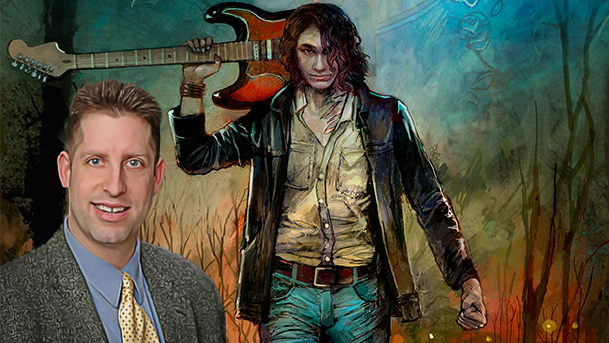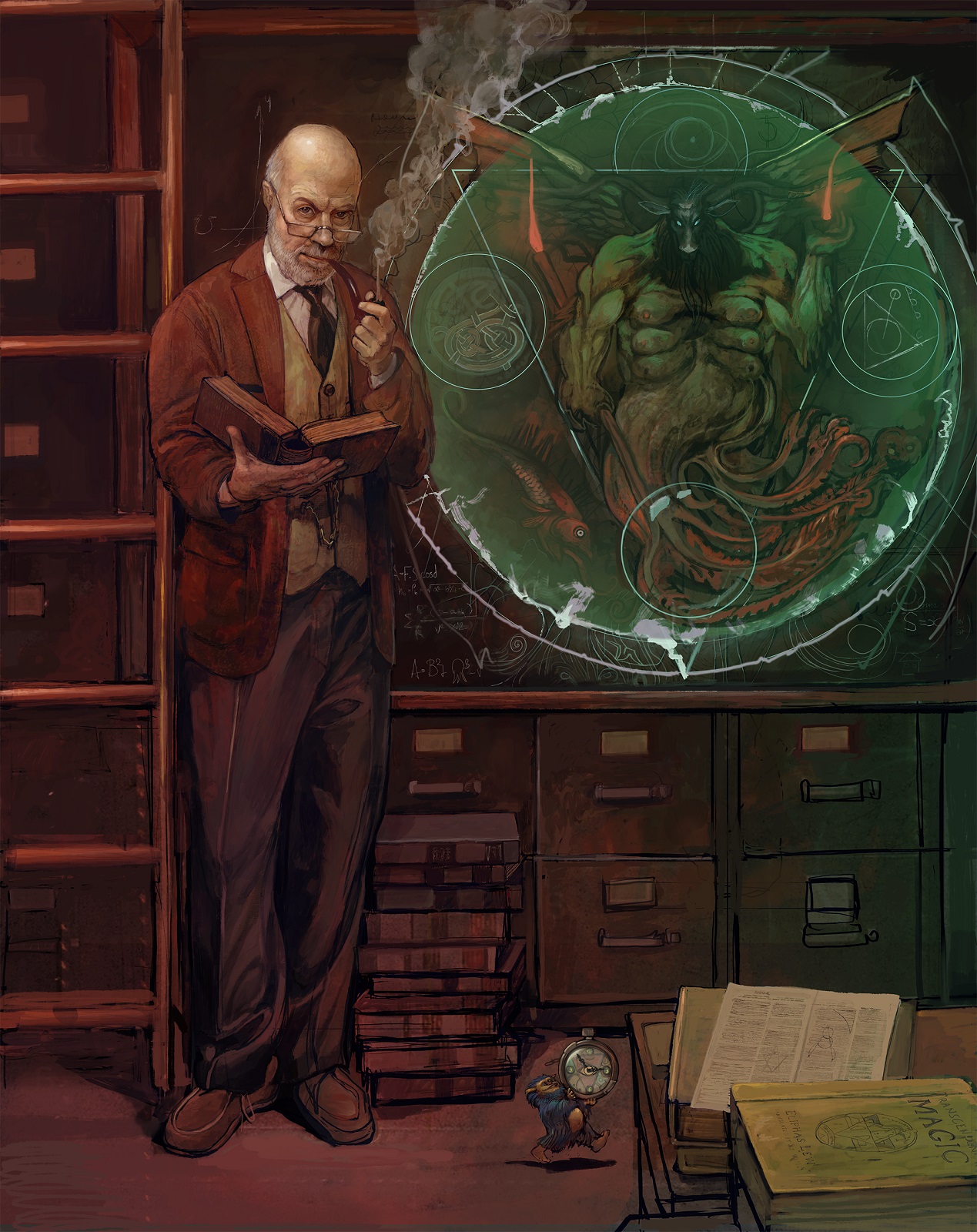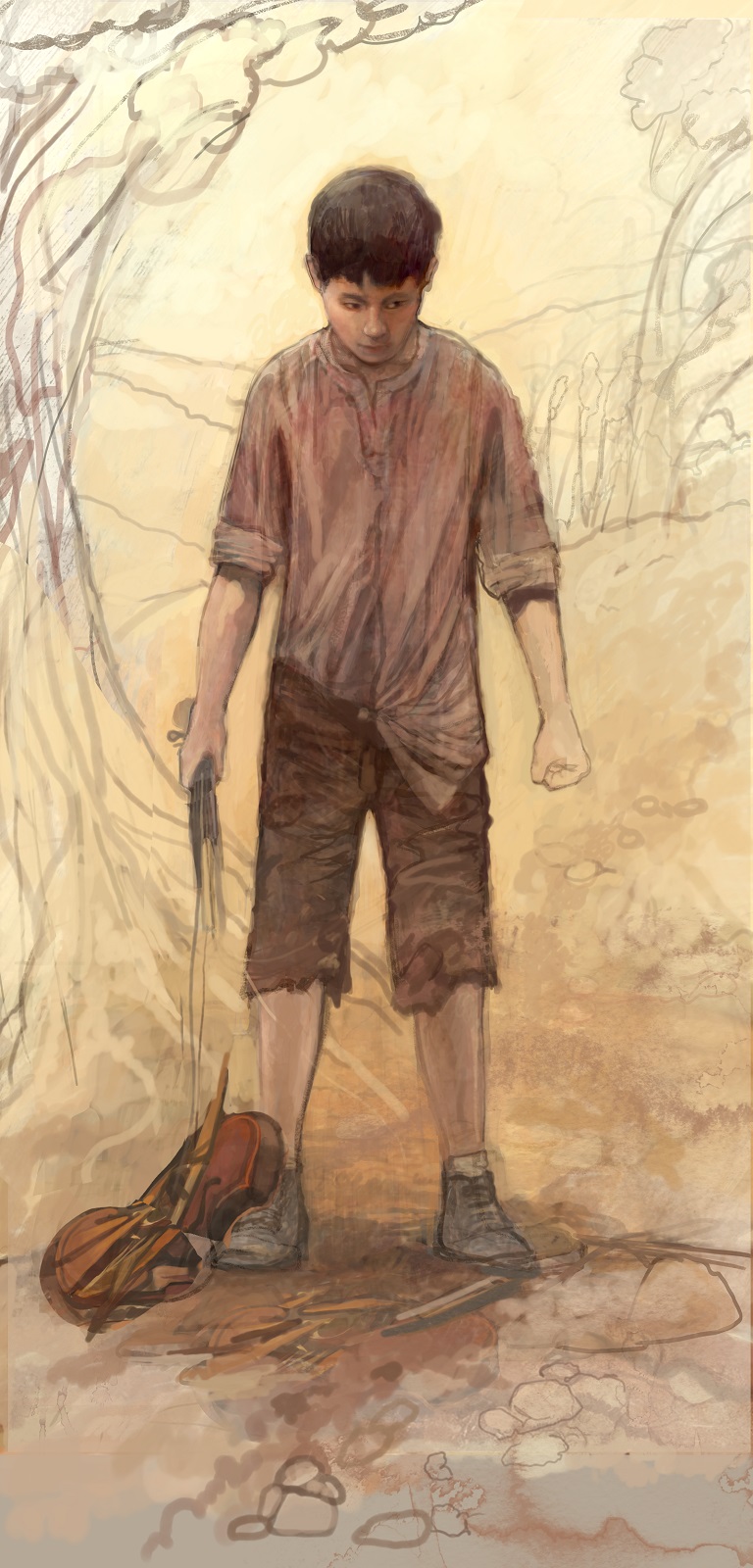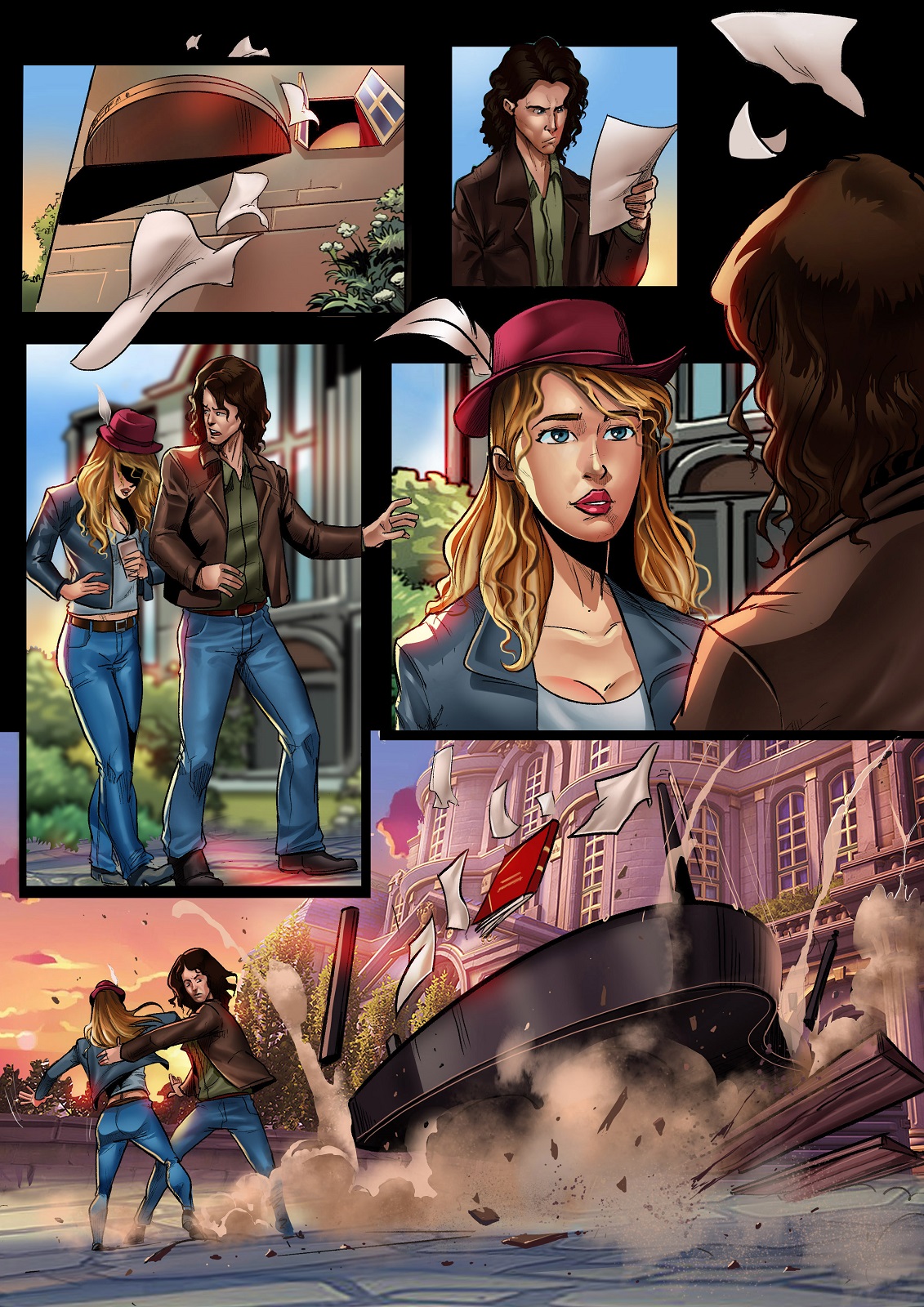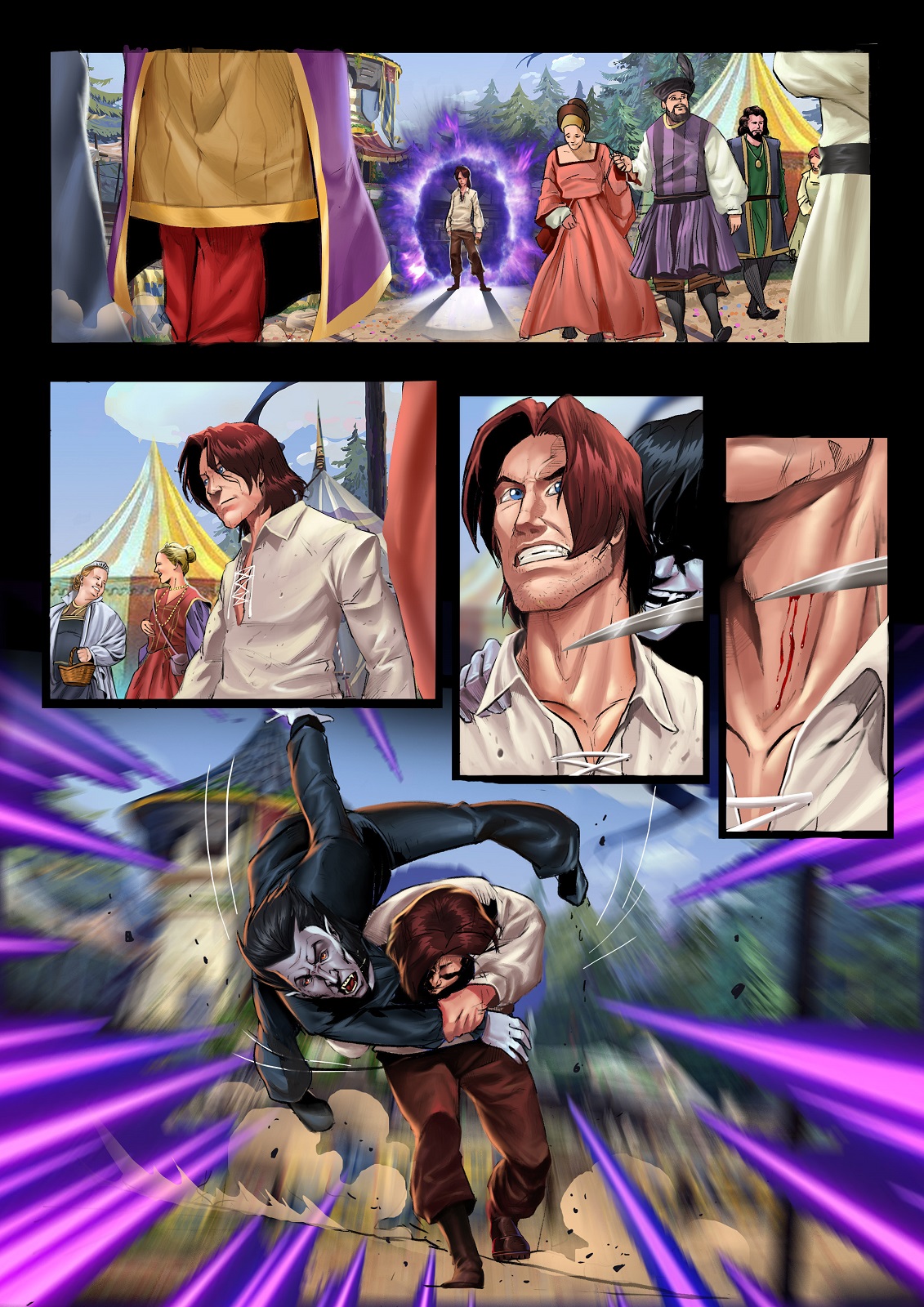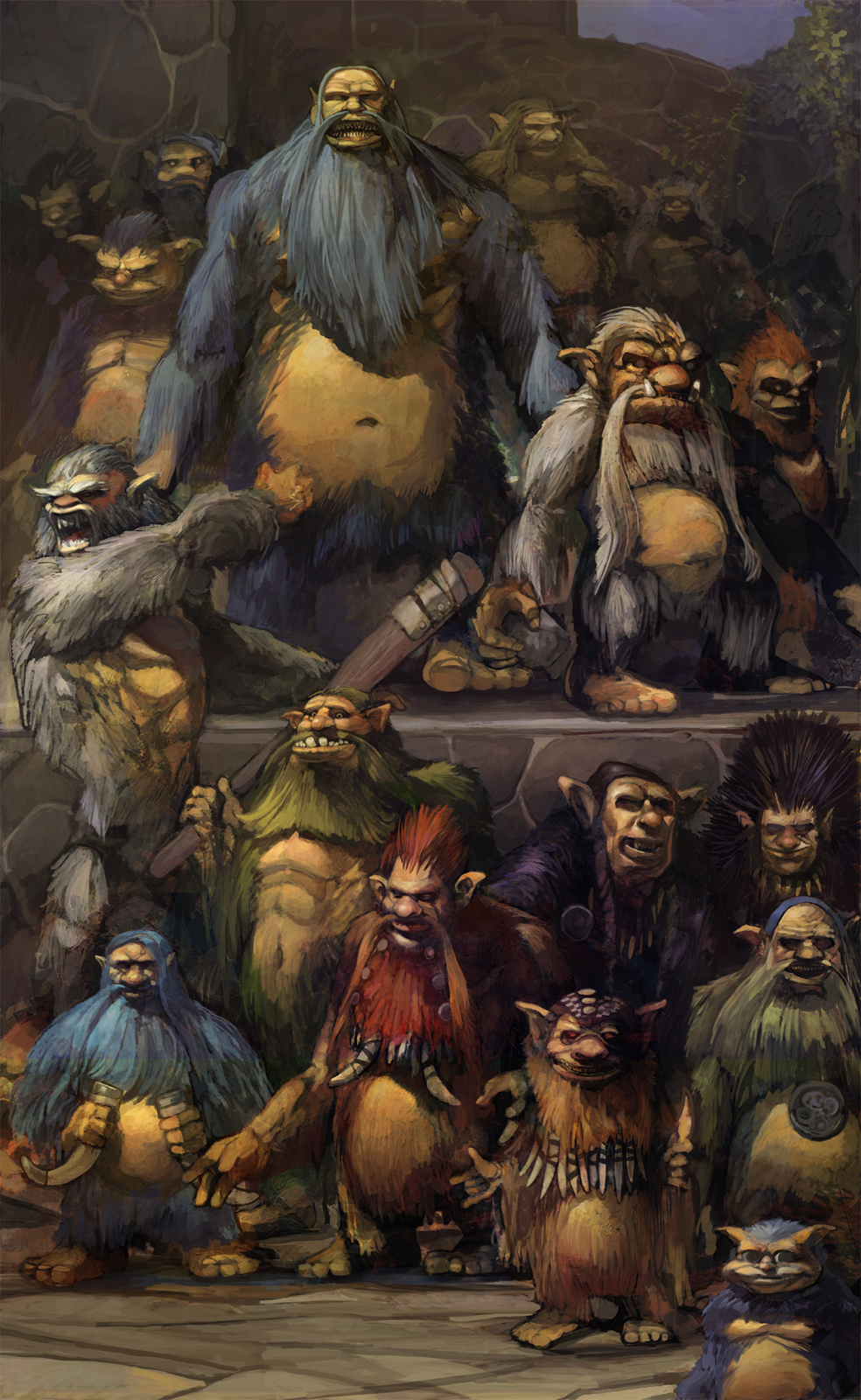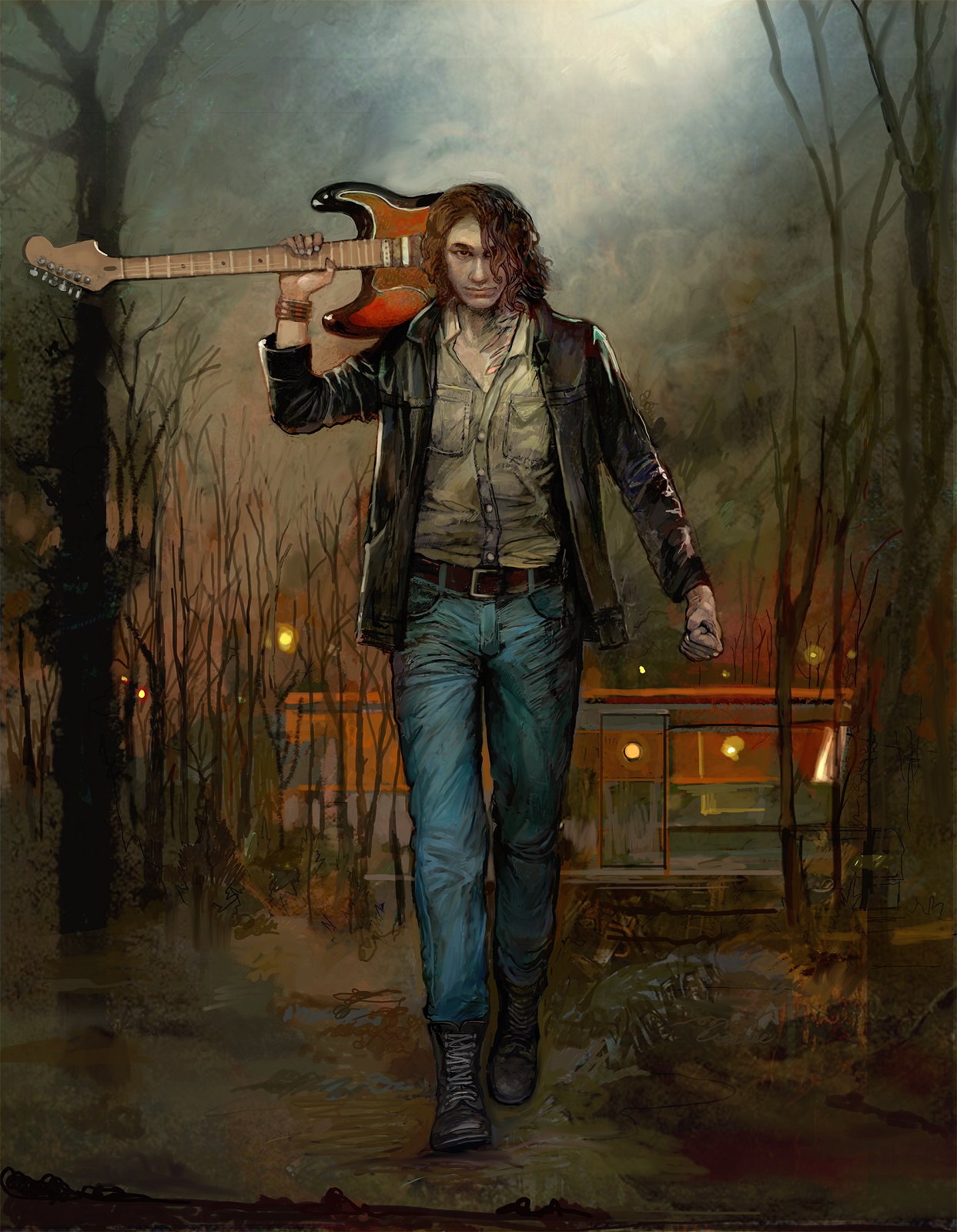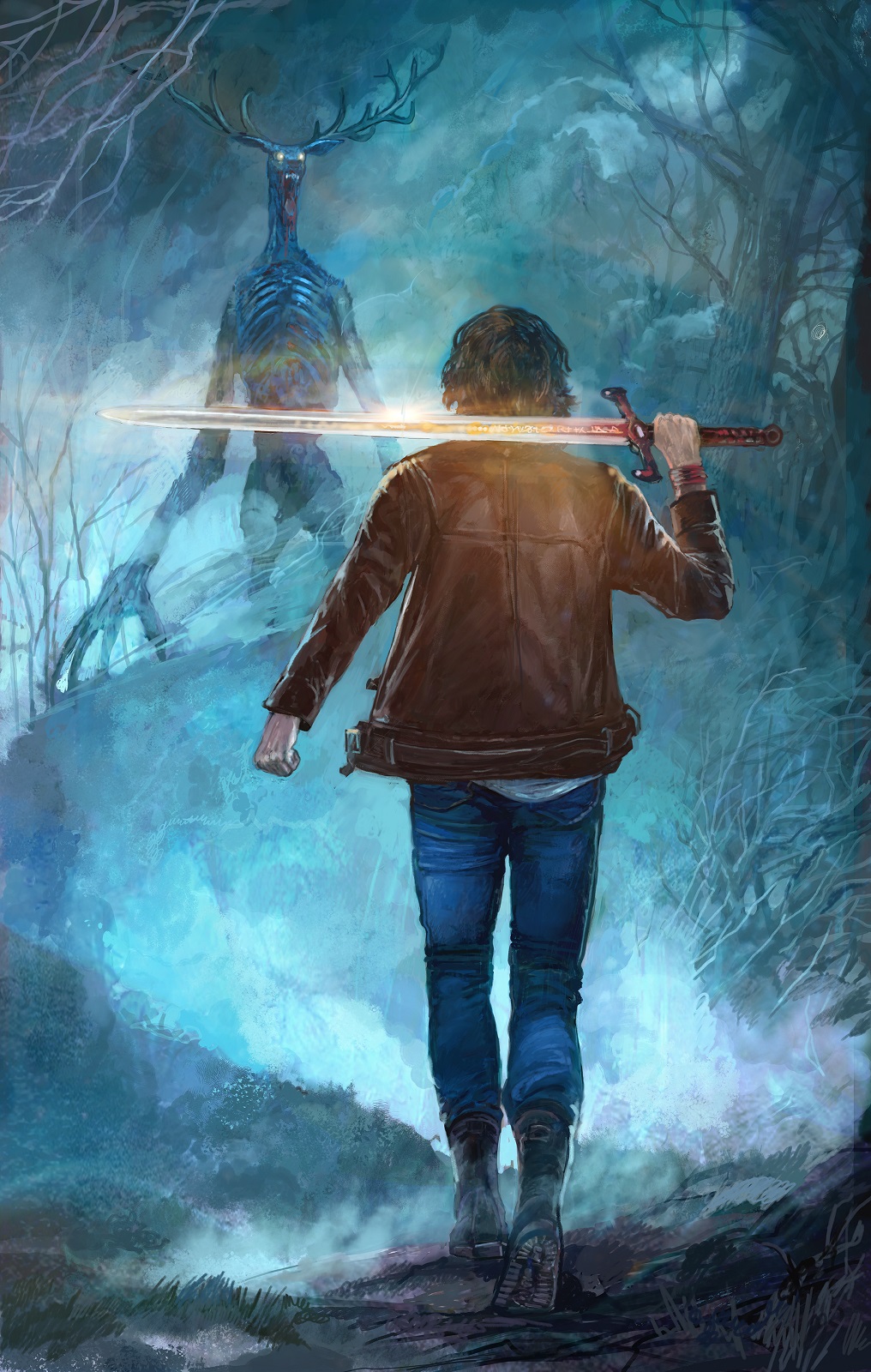Recently, Tellest was given the opportunity to work with J.W. Zarek to promote his just-released urban fantasy, The Devil Pulls the Strings. While the author has worked tirelessly on a plentitude of other projects, this was his first published fantasy, and readers will see that he planned for it meticulously. With a book and audiobook upon us, and a graphic novel on the way, Zarek wears his passion for the world he builds proudly. Today, we have the opportunity to learn more about him. Read on to find out what secrets J.W. Zarek has to reveal.
Tellest: Greetings JW! We’re finding out across many interviews that the writers we hear from lead incredibly busy lives and are some of the most generous people with their time. That certainly seems to be the case for you, since you look to have done so much with your life, and I’m sure you’re continuing with that metric. I want to say I appreciate you spending the time to speak with me. I’m looking forward to finding out what goes into the mind of J.W. Zarek!
J.W. Zarek: Tellest, thank you for making time for this interview.
T: My interviews typically start off with a question of what inspired people to write, but in your case, you’re venturing in several different directions, so we may need to dive a little bit deeper. As you’ve explored fiction, non-fiction and soon a graphic novel, you must have plenty of inspiration to choose from. Do you mind giving us a greatest hits version of those who motivated you to explore your creativity?
JWZ: Tellest, thank you for asking, that’s a great question. I came into this world with a set of challenges. I was born with flat feet, ADHD, athlete’s asthma, a heart murmur, Spina Bifida, and an abusive alcoholic father. By eight, I was almost legally blind.
None of these challenges stopped me from doing gymnastics in high school, racing in downhill ski competitions, running in a marathon, serving in the U.S. Navy, FBI, DHS, and other agencies. Or from climbing to the top of Mount Fuji, getting kicked off Mount Rainier. And coming back from almost losing my leg following my first deployment during the Persian Gulf War and beating MRSA before my second deployment back to the Gulf was the toughest challenge, I’ve faced to date.
T: You’ve certainly lived a lot of life! How does writing a book compare to all the crazy things you’ve done beforehand?
JWZ: It’s a different kind of adventure because a writer’s journey doesn’t stop at one article, paper, or book. Because there’s always something new to learn, revisit, research, read and write, then rinse and repeat.
Before I write a story, I do heavy research and travel to locations I plan to write about. An example of this is I visited every NYC location that appears in The Devil Pull the Strings because I wanted to experience what the protagonist, Boone Daniels would have felt with all his senses, and I’m from NYC.
So, when I stepped out of the cab I took to Professor Stone’s brownstone in the book, the instant aware aroma and flavors wafting up my nostrils of pizza, dog droppings and vomit made me swallow back breakfast. This in turn set the tone in the scene the protagonist experiences something similar made the scene sizzle.
T: There’s a good level of authenticity there, and it certainly allows you to paint a picture. How does that compare to the times in your writing where you’re working with something that’s completely out of your imagination?
JWZ: That’s an interesting question. Most folks are familiar with the phrase write what you know, but when faced with writing the unknown, it can seem daunting and impossible challenge. An example of this happened when I transferred into Forest Hills High School in Queens, NY.
My first day in English class the teacher is mad most of the class failed the previous week’s test. “I can’t believe no one did well on last week’s test. Okay, you all read Macbeth by Shakespeare last year. I want you all to write a paper about Lady Macbeth and what you think she did or did not do and turn it in before class ends. Okay go, and you better not disappoint me.” Then he sat down and read the NY Times.
My throat tight, my swallow stuck. I didn’t read Macbeth last year. I never read Shakespeare. I leaned over to the guy in the chair to my immediate left, “Who’s Lady Macbeth, and what’s Macbeth about?” I whispered.
“Lady Macbeth convinced her husband Macbeth to kill the king, and then felt guilty after, and killed herself.” he whispered back.
“Okay, thanks.”
I finished my paper and turned in it, and in the next class the teacher said “It’s good to know most of you know your Shakespeare, but two of you know Shakespeare better than anyone else, and they’re going to read their paper in front of class.
The teacher called up a student near the front and he read his paper, and it was pretty good because he wrote as if he was Lady Macbeth’s attorney, defending her in court. He finished and sat down.
Then the teacher thanked the student, and said, “I gave that paper an A,” and then he called me up to read my paper, and I said I didn’t want to out of embarrassment, but he said he’d fail me if I didn’t, so I shuffled up to the front of the class and read my paper where I’m Lady Macbeth’s criminal psychologist at Riker’s Island Prison Facility treating Lady Macbeth, and I wrote the paper like it was a play, and as the paper progressed, Lady Macbeth’s condition worsened, and she took her own life, and at her funeral I questioned if treatment provided helped, or if the Lady Macbeth was finally at peace.
After I finished the teacher told the class “I gave that paper the only A+ in class, because this student knows his Shakespeare.” I thanked the teacher and took my seat; happy I passed.
T: In real life, you caught bad guys for the government. That’s got to track in a book like The Devil Pulls the Strings with some awesome inspiration of its own. Does writing those kinds of stories feel like you’re back in the saddle in some ways?
JWZ: Yes. Writing brings a different set of challenges, and creates a difference level of exhilaration, and different kind of achievement. The first draft is a pile of manure. Then you revise and revise and revise. Build on what works to move the story forward. Then throw away everything else. Then you work with an editor, and they recommend where to add, modify, or cut content, and you make revisions, and repeat the process, until everything flows and feels just right. My line-by-line editor cut 42,000+ words from my book, but after I incorporated her suggestions and revised content, what remains sparkled and shined.
T: You’ve created an interesting character in Boone Daniels that readers will no doubt have a blast with. Boone has enough development and characterization that you can’t help but want to know more about him and follow along with his insane story. How did you come up with a character like Boone, and where do you go from here?
JWZ: Before I write, I create a character’s backstory, and identify their personality traits, quirks, flaws, strengths, and weaknesses. Doing this results in less to think about when I write a scene or chapter, because the characters act and respond naturally to unfolding circumstances in unexpected ways that improve the scene and it flows better.
Part of Boone’s backstory is he loses his parents at the age of six and must go live with his aunt and cousin at his aunt’s trailer park in Wentzville, MO. Wentzville is a small town near the St. Louis Ren Faire, and it’s not uncommon for locals to find work at the Ren Faire, and Boone eventually becomes a Ren Faire knight and learns to sword fight, speak French, and play in a Ren Faire band, which all comes in handy as the story unfolds.
Regarding where I go from here is to continue writing the other books in the Archivist Series with characters from The Devil Pulls the Strings, including Boone, because there are more stories to be told.
T: Early on, The Devil Pulls the Strings has received massive acclaim from a few different venues. How vindicated do you feel in releasing something that has had such a profound effect?
JWZ: I wrote The Devil Pulls the Strings to honor the hero’s journey and infuse Slavic mythology and the many faces of Baba Yaga, the mother of all witches, in a modern-day setting. And all the readers and reviewers who genuinely like and love this story reaffirms everything I put into bringing this story to life.
The most unexpected profound effect for me were the many individuals who looked up and listened to all the music and musicians I reference in my book. This inspired me to use real world-class musicians, violinist Oleg Bezuglov, pianist Natalia Bezuglova, and guitarist, Vladimir Gapontsev to create snippets of Paganini’s music listeners can hear on the audiobook, including Paganini’s secret sonata.
T: Rock star versus evil isn’t an unprecedented theme in fantasy, but it’s still pretty rare. Was The Devil Pulls the Strings always meant to be a musical journey as well? What inspired you to create such a tale?
JWZ: The musical story arc in The Devil Pulls the Strings came about because I asked the question: Imagine if the rumor about Niccolò Paganini was true?
Paganini, born in 1782, was the world’s first Rockstar of his day, known as the world’s greatest violinist who revolutionized violin technique. And rumor has it, his mother gave Paganini’s soul to the Devil so Paganini could be the world’s greatest violinist. And if true, then you’d be immersed in the world of The Devil Pulls the Strings, where time travel, twisted history, secret societies, Paganini’s music and one haunted hero collide.
T: Within the Archivist series, do you believe that most everything will revolve around the musical appreciations, or do you see future books extending beyond that? It’s a motif that is apparent here, and obviously sets a lot in motion, but your world seems versatile enough to bend and flex around it.
JWZ: Each book I write in the series shall center on different characters and play to their strengths and weaknesses. While I intend to infuse Slavic mythology in every story, most of the characters live in a world of music, so its possible musical appreciation shall continue to appear in future books.
T: It probably can’t be helped that your book sounds like some of the best supernatural shows that have come out over the last few years (or decades, in some cases). Have you ever envisioned your story in that medium?
JWZ: The entire story played in my head like a movie or TV series when I wrote it. And I appreciate readers and reviewers continue to tell me they can easily see this as a TV Series and Bonnie Solomon, Producer who worked on Shrek, City of Embers and Chronicles of Narnia told me my story would make an excellent eight-part series on Netflix, Hulu or Amazon.
T: As much work as you’ve put into it already, and with the awards you’ve garnered, have you pounded the pavement yet to try and shop it around?
JWZ: That’s a great question. As buzz grew around my book, one California production company offered to turn the book into a podcast series and pitch the story’s premise to studio executive and producers, and I thought about.
However, Pro Audio Voices and Curt Bonnem did such a fantastic job on the audiobook, and can easily create the podcast series, and save tens of thousands of dollars in the process, that’s being done as we speak. And Anthony Mora’s PR Firm, PR for Writers and Filmmakers is putting in a good word for me with their studio executive contacts and producers they know, so we’ll see how things go.
T: You’ll certainly have to let us at Tellest know when that happens!
JWZ: Most certainly.
T: The Devil Pulls the Strings is not your only claim to fame at this point. While you’re releasing this book shortly, you’ve also got a graphic novel version of the story in the works, and you’ve previous released some non-fiction as well. Is it difficult to manage all these different threads, or does it become easier with each new achievement?
JWZ: I wear many hats and work 14-16+ hour days as a matter of routine and recognize it’s not possible to do everything simultaneously. Instead, I use available free time to write. I’ll wake up early, go to bed late to squeeze in writing, and use the train ride to and from work, and it somehow works. It’s not necessarily easier. I also find setting writing goals and scheduling time to write in advance helps. I also listen to music and have art and images nearby appropriate for the scenes and chapters I write.
T: With all the good bits of news you’re getting with your writing, do you imagine a world where that becomes your full-time gig? You mentioned earlier that there are more forthcoming books in the Archivist Series. How vast is this universe you’re creating?
JWZ: Bestselling authors I’ve spoken with told me they wrote five to seven books before they were able to replace their annual income. So, I plan to continue to work and write, and when the opportunity happens to retire, I can focus on writing full-time.
The universe I’m creating is vast. I plan to show and highlight the many myths and stories found in Slavic mythology in my world. In The Devil Pulls the Strings, I share and show the many faces of Baba Yaga, the mother of all witches. I also write about the domovoi, similar to house brownies or elves, and how I evolve and use the domovoi go far beyond what’s found in myth and allows me to write multiple books on them alone.
T: There is a lot of room for you to grow the Archivist series to even more epic heights. While you’re working on that, though, do you imagine working on any stories outside of that universe?
JWZ: Yes. Bestselling author Adam Hogue invited me to co-author his next book, by authors for authors, filled with stories, cautionary tales, step-by-step instructions, and more. And bestselling author Brian Wright invited me to co-author his next book about lessons learned from our fathers. I’m excited about that project. And another book I intend to write shall be a secret, unauthorized guide to getting a security clearance Government Adjudicators don’t want you to know about.
And in The Devil Pulls the Strings, I introduce beings from Slavic mythology called domovoi. They’re like house elves or brownies, and found in homes, and guard your valuables. And in the Devil Pulls the Strings, they’re shape-shifters who guard the secrets and tunnels, caves, and vaults of the secret societies. I can write a volume of books on domovoi and their culture, clans, history and thousand-year treasure war.
T: You’re also plenty busy outside of your writing endeavors. If there was one or two things that you would want readers to know about you beyond your writing, what would they be?
JWZ: I love to hike and climb and want to be the first person born with Spina Bifida to climb and scale the world’s 14 tallest peaks.
T: You mentioned some earlier mountaineering treks as well. How far along are you on your journey to climb the 14?
JWZ: I’m at ground zero and intend to pursue this after I retire, because of everything that goes into a climb. It’s not just about having permits and funding in place, but availability. This is relevant when you can’t take off work for 63 days in a row to scale Mount Everest. And more important than scaling the world’s tallest peaks is the journey and adventures experienced along the way.
T: I wanted to thank you for letting us pull back the veil and learn more about you and your work, JW. It’s always such a breath of fresh air to be able to talk to someone who is well-lived and continuing to express their creativity in such interesting ways.
If a reader wanted to learn more about you, where could they find you on the internet?
JWZ: Thank you for interviewing me, and folks can find me at jwzarek.com, and search online to find me on Facebook, Twitter, and the many forums and groups I appear in.
T: Once again, I’d like to offer my appreciation to J.W. Zarek for spending his time hashing out details of his life and his writing. He’s truly an interesting character himself, and he is insanely devoted to his blossoming world. I’m sure he will do great things with the Archivists series, and we here at Tellest will make sure we announce whenever his next projects drop. In the meantime, be sure to check out The Devil Pulls the Strings on Amazon, as well as the audiobook here on Audible.
Michael DeAngelo
Latest posts by Michael DeAngelo (see all)
- Fantasy Promo – Quinine - July 25, 2024
- Sigil Art – Grim’s Hold - July 24, 2024
- Fantasy Promo – Light the Shadows (Under Elfhame’s Stars) - July 24, 2024
